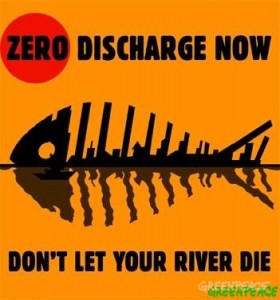To read the full article, please login. The full content of this article and all premium articles is available exclusively for site members.
Site membership is free. If you are an existing user, please login. New users may register below.
World´s leading scientists hang on to global warming story, despite declining rate of temperature increase
World´s leading scientists hang on to global warming story, despite declining rate of temperature increase Polar bear threatened amidst melting of Artic ice Climate change due to global warming continues to be a major threat for the world, according to the recently released IPCC report, the leading source for the assessment of climate change. Dramatic implications[1] Extreme weather conditions, rising temperatures, rising sea levels, and melting of ice in glaciers are dramatic implications of the horror scenario outlined by the world´s leading climate scientists, unless the world is ready for drastic changes of energy consumption and energy sources. But even then the effects can only be mitigated. The ice cap on the Artic sea and Greenland is melting, causing a rise in sea levels. This is not only a problem for polar bears whose habitat is seriously threatened. The repercussions of rising sea levels will threaten coastal cities all over the world. Maps comparing the Arctic ice minimum extents in 2012 and 1984. A record-breaking melt on the Arctic ice cap , reported by the National Snow and Ice Data Center [2] There is a one in six chance of a the coastline sea level rise of at least 3 meters (ten feet) by the end oft the century, with escalating storm surges and tides. The picture shows how the coast of New York City and Long Beach area could be affected (screenshot is taken from Climate Central’s interactive map[3]). The IPCC report The IPCC (Intergovernmental Panel on Climate Change), is the leading international body for the assessment of global climate change. It was originally established in 1988 by the United Nations Environment Programme (UNEP) and the World Meteorological Organization (WMO) to provide the world with a scientific view on the current state of knowledge in climate change and its potential environmental and socio-economic impacts[4]. The Fifth Assessment Report of Working Group I is now released. Download the full report[5] and Summary for Policy Makers [6] Over 800 scientists from all over the world, contributed to the IPCC reports, in total more than 9,000 peer-reviewed papers. It represents a summary representing the current state of climate science. The report leaves no doubt that „warming of the climate system is unequivocal, and since the 1950s, many of the observed changes are unprecedented ……. The atmosphere and ocean have warmed, the amounts of snow and ice have diminished, sea level has risen, and the concentration of greenhouse gases have increased.“ In the current IPCC report scientists underline, with greater certainty than ever, the role of human activities in rising temperatures. It is now considered even more than 95% certain that human influence, primarily from burning of fossil fuels and the release of CO2 greenhouse gas, has been the dominant cause of the observed warming since the mid-20th century. Natural internal variability and natural external influencers, e.g. from solar activity, have contributed virtually nothing to the warming since 1950. global temperatures rose by 0.78-0.85 °C, depending on the method of assessment,



